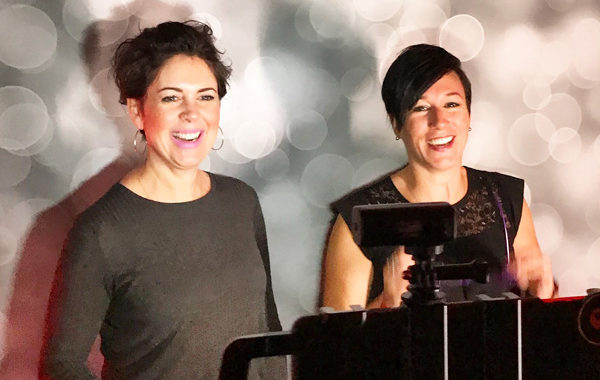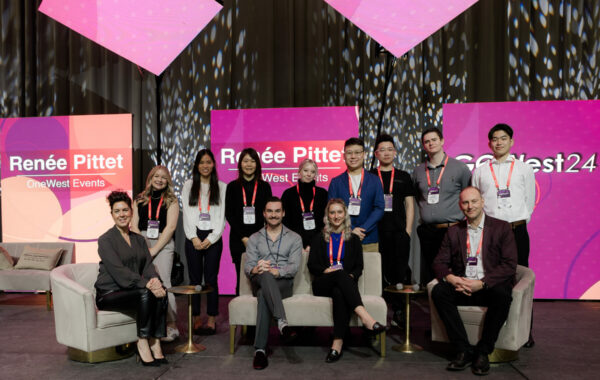Our news feeds were flooded recently with videos of Mark Zuckerberg, founder of Facebook, sitting in front of US lawmakers being grilled on how his company failed to protect user data, and what he plans to do about it in the future. His appearances and the related Cambridge Analytica scandal is of course big news, of which we’ve all heard the bullet points, and together with the upcoming changes to the European General Data Protection Regulation (GDPR), data collection and the related ethics are at the top of our minds.
The collection, use, and protection of personal data will only become more and more important as technology continues to evolve and play an ever-more-present role in our lives. While recent news doesn’t cast it in the best light, data collection can have really great uses and applications; it can make the products and services we use better, the advertising we experience more relevant, and the events we work on or attend more rich and meaningful. So instead of throwing the smartphone out with the bathwater, so to speak, let’s talk about how we can collect data in an ethical and responsible way as we continue to innovate, and use that data to make our events better than ever before.

What does data collection have to do with events?
Data collection in the event industry usually centres around these things:

Lead generation and building a database: Live experiences really come down to the connections that are made. Apps like Poken, yellobox, and Leadature provide ways for guests to connect and interact with one another while at the event in a more modern way than an old-school business card exchange. Custom apps designed specifically for an event can do this as well, along with providing other custom information. By collecting the data generated by guests using these apps, we can build a database to be used for future marketing, and also observe how guests interacted with the programs, entertainment, and environments we created, and with each other.

Collecting feedback and determining ROI: Especially if you have a recurring event, you want to know how you did so that you can learn, grow, and get better each year. For any event, it’s incredibly valuable to be able to show how an event’s objectives were met in a quantifiable way. Even with the high-level of sophisticated technology present at most events (and used for the marketing of events) these days, feedback is often still left to primitive paper forms, and determining success often comes down to simple attendance numbers. By collecting data from apps like those mentioned above, we can get better feedback that will help us to understand what guests liked, what fell flat, and how we can improve, and can also help to determine a more quantifiable ROI than, “well… it seemed like people were having fun.”

Tracking guest behaviours: Apps like EventPilot can create heat maps that show traffic flow, helping us to understand how guests moved through a space and where flow problems occurred, and identifying the most popular areas. All of this ties back to guest experience eventually, as we can use this information to reduce line-ups, enhance education programs, and understand how and where guests want to interact and what resources we can provide to make those meaningful interactions happen.
Check out this great article for more on these and other event apps.
Now that we’re sold on data collection, how do we do it responsibly?
None of us wants to end up answering for our data collection failings in front of a bunch of congressmen and women, obviously. As a first step to avoiding this and other problems, there are some basic things to keep in mind:
- If you don’t have express consent, you do not collect data. If minors are involved, parental consent comes into play as well.
- In obtaining consent, don’t hide behind long pages of scary (or just boring) fine print. Worse yet, don’t be misleading. Be a leader by honestly, clearly communicating how you will be collecting data and how you intend to use data.
- It is your responsibility to know how data you collect is being protected. Look into the apps and services you’re using and be aware of how they store, protect, and delete data.
- General awareness on everyone’s behalf is important, but designating one person (or team) to be responsible for compliance and education is ideal.
With that in mind, we encourage you (or your designated person!) to do some more reading – we will definitely be researching further too, so send us those good links when you come across them. Here are a few places you can start:

Technology for good
We’ve all watched Black Mirror and we all know that technology has the potential to create some pretty grey ethical areas. In the case of Facebook, the failure to protect where personal data ended up had ramifications that may (or may not, we’re not saying) have rippled all the way to the White House. This is why having these conversations now is so important, because sticking our heads in the sand or hiding in a technology-free closet isn’t the answer either. So let’s talk! We’d love to hear your thoughts on data collection, or other resources that we should add to this post.




